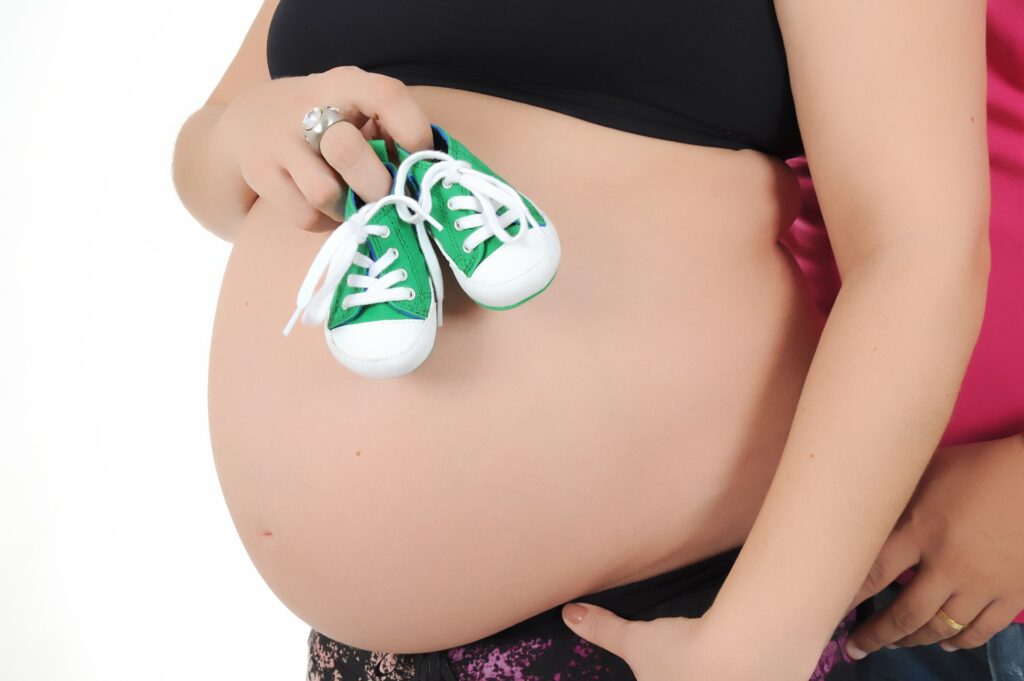Top 3 Causes of Hiccups in Unborn Babies

Hic! Hic! Hic!
Hiccups in unborn babies can be worrying, especially for first-time parents. They are part of pregnancy symptoms that you should be prepared for.
How can an unborn baby hiccup while in the womb? Again, is hiccupping in an unborn baby alarming?
This article discusses everything you need to know about fetal hiccups or, in simpler language, hiccups in unborn babies.
What are fetal hiccups?
Fetal hiccups, or simply an unborn baby’s hiccups, are the constant movements an unborn baby makes inside the womb. The hiccups result from diaphragm movement as the baby starts practicing how to breathe.
Any time the baby inhales, some amniotic fluid enters the lungs, forcing the diaphragm to contract, producing a hiccup. Hic!
What Do Fetal Hiccups Feel Like?

When my spouse was pregnant, I would look forward to feeling the hiccups! At first, I thought the baby was kicking, but phew! I was just wrong.
“How can you tell hiccups from kicking?”
The beauty of fetal hiccups is that they are easy to note, especially at the end of the last trimester. Their length and strength might vary, but you can easily tell them apart from kicking.
What do Fetal Hiccups Signify?
You might be concerned about your unborn baby’s hiccups, wondering what could be going wrong. Here is a summary of what happens during fetal hiccups:
1. Development of the respiratory system
A fetal hiccup shows the baby’s respiratory system, particularly the diaphragm, is thriving. The diaphragm development starts at week ten and can be observed through a sonograph. Any time the baby hiccups, you should smile, knowing that they are healthy and their respiratory system is growing as expected.
2. Development of Baby’s Reflexes
Fetal hiccups also mean that the baby’s reflexes are growing as expected. Simple reflexes such as thumb-sucking, suckling, and yawning develop during fetal hiccups. The more the baby hiccups, the better their reflexes will be, when you give birth to them.
3. Development of the nervous system
A baby’s nervous system develops during pregnancy, and that is another reason for fetal hiccups. The hiccups indicate that the nerve that controls the diaphragm functions is developing as expected. Isn’t that an indication your baby’s nervous system is developing at the right rate?
Is it Healthy for the Fetus to Hiccup?
Yes, it is healthy for a fetus to hiccup. You must have heard from different women about the frequency of their fetal hiccups. Don’t let their fetal hiccup experiences make you feel like you are missing a lot.
Sometimes, the hiccups can be too much. At other times, fetal hiccups can be faint, while you might never experience them at other times.
Whether the fetal hiccups are too much or too little, don’t worry. Just like your emotions, the fetal hiccups vary in frequency.
When Should Fetal Hiccups Worry You?
Mothers’ instincts are more often than not right. Should you note any abnormalities in the fetal hiccups or other movements, kindly contact your obstetrician. Don’t feel like a burden to them; your baby’s well-being is paramount.
Can I Stop Fetal Hiccups?
Different women perceive fetal hiccups differently. To some, the hic! Hic! is all fun. But to you, the hiccups might be distractors or irritants. In this case, what should you do?
Unfortunately, you cannot stop fetal hiccups. However, you can reduce the impact through these tips:
- Drinking plenty of water.
- Changing sitting or sleeping position.
- Walking around or doing light exercises.
Are you experiencing strong fetal hiccups? You are not alone, and the hic! The hiccup is part of the pregnancy journey. Embrace it!



